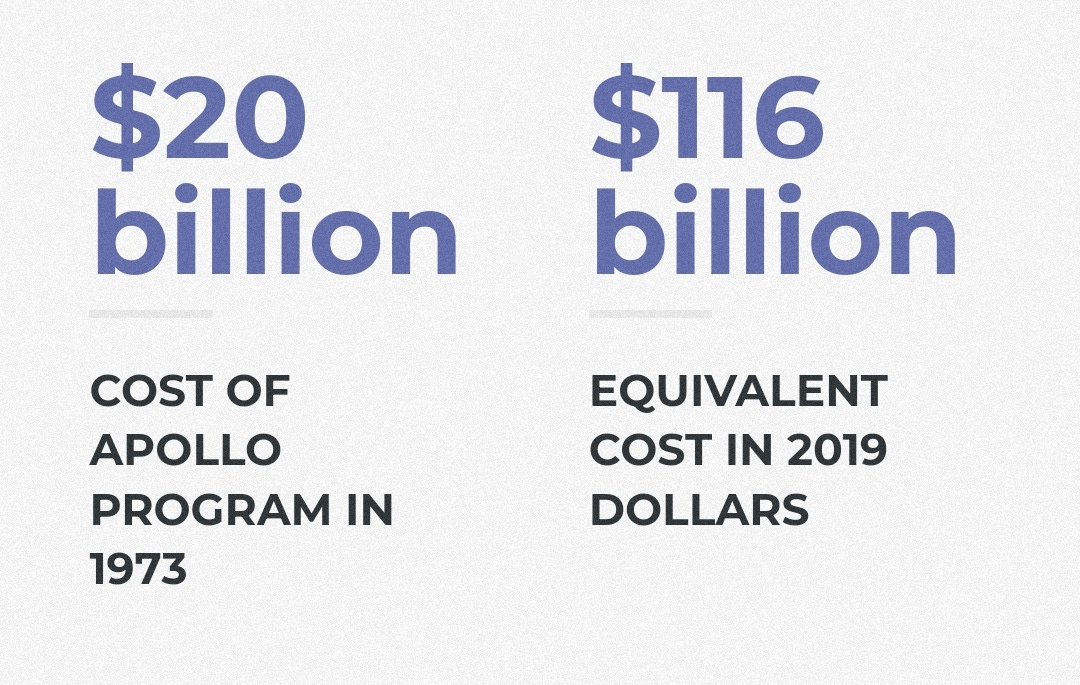🚀 To the Moon: India's Space Industry!
The private Indian space tech industry has been booming since 2020. Why? ReadOn!
The year is 2020.
The world is facing a massive demon: Covid.
In this state of despair and helplessness, emerges a small ray of hope for India, and for the whole of humanity: the launch of the IN-SPACe (Indian National Space Promotion and Authorization Centre).
This centre is helping Indian startups realise our space travel dreams and swiftly move towards a voyage beyond the stars.
How?
Well, sit back and ReadOn!
⚡Why Private Participation is Needed in Space
Humans have always been curious about reaching the stars and beyond. And governments around the world have tried to conquer Space.
Yet, only one country was actually able to put humans on the Moon after World War II: the US.
But this human exploration of the Moon seems to have come to a standstill. 50 years later, and the US hasn't sent a human to the Moon. Why, you ask?
Well, the same reason why you can't quit your job and spend the rest of your life touring the world: lack of money.
Source: Brittanica
You see, most governments can't justify billions spent on space explorations when people in their country are struggling to make ends meet.
This is why private space tech companies have come up: to do what government agencies can't.
What is this superpower that they possess?
Well, these startups get funds due to credibility of their billionaire founders or through Venture Capitalists (VCs). They don't need to carve it out of the country's budget.
Plus, government agencies have to do zillions of things. For instance, ISRO has to create rockets for its launches, plan upcoming space explorations, spend on research and whatnot.
Private startups, on the other hand, can focus on just one area, be it space tourism or launching rockets.
This laser sharp focus has increased our space prowess. With some companies focusing only on building rockets, we have figured out the key to build reusable ones.
This has massively reduced the cost of launching satellites into space from $200 million to $60 million. And it could go down to as little as $500,000!
What's in it for us? Well, this would make it cheaper for us to go on a space vacation!
🤔 How IN-SPACe is Helping
You see, foreign private space tech companies like SpaceX and Virgin Galactic are well funded, unlike Indian space tech startups.
Our startups neither have the kind of infrastructure that government agencies have built over the years, nor have the time to build it.
So, the IN-SPACe program was launched to facilitate private entities to use government infrastructure to grow. The IN-SPAce centre acts as an autonomous agency between startups and ISRO and also supervises startups' activities.
And that's how India's first privately launched rocket (built by Skyroot) took to the skies last month.
This program has led to a 10x growth of space tech startups in just 2 years: from 11 space tech startups in 2019 to over 100 startups in 2022!
Woah, too many startups for a niche industry like space?
Well, the vast confines of space hold infinite possibilities!
💡Opportunities for the Space Industry
The global space industry is set to be worth $1 trillion by 2040!
And we aren't just exploring space travel.
There are a number of opportunities like:
Space Mining: Asteroids hold a lot of rare metals and elements. Just one asteroid, 16 Psyche, is worth a trillion dollars! Mining them could help us deal with a shortage of these minerals on Earth.
Debris Removal: Space might be infinite but the real estate around our atmospheric borders is scarce. With too many satellites being launched, the risks of satellites crashing into each other is rising. Plus, there's a lot of space junk out there that threatens our safety. So, some startups are removing this junk.
Satellite Manufacturing and Launching: Data recorded by satellites and signals broadcasted by them impact every aspect of our lives. Just the business of manufacturing, launching and operating these satellites is huge.
So, this sector holds a lot of promise.
And it seems like VCs agree with us. Because even though overall VC funding was down by 66% in Q3 of 2022, space tech startup funding was up by 61%!
🤓 Promising Space Tech Startups!
Skyroot: Yes, the company that rose to fame by launching India's first privately built rocket. And it plans on making these launches a monthly habit from 2025. Now, this wouldn't be possible earlier but Skyroot plans to use reusable rockets, which will cut down the cost and time taken for each launch.
Agnikul: Agnikul is similar to Skyroot. Both use 3-D printed rockets to make the manufacturing process easier and cheaper. But while Skyroot is targeting the big fish, Agnikul wants to focus on taking small satellites to space.
Dhruva Space: Dhruva Space ensures that a satellite is properly launched in space and remains in its determined orbit. It also monitors satellites, ensuring they continue to operate smoothly.
SatSure: SatSure is a deeptech company that analyses all the data that comes in from satellites and brings out actionable insights. Like how crops will do in one particular season, how climate change can impact a sector. This data then helps banks and other financial services startups to better understand when they should extend loans, how much insurance premium they should charge and so on.
There are innumerable exciting startups working in this space. We've researched over 20, but we can't possibly list all of them. Let us know which spacetech startup you find the most interesting and would like us to cover in details!
⚡In a line: Thanks to government intervention, Indian space tech startups are having the time of their lives.
💡Food for Thought: The boom in the space tech startup space and the frequent rocket launches could increase our carbon emissions. Do you think we can solve this problem?
Share this with your friends via WhatsApp or Twitter and help them grow!
See you tomorrow :)
If you are coming here for the very first time: Don’t forget to join us on WhatsApp to get daily updates! 👇


